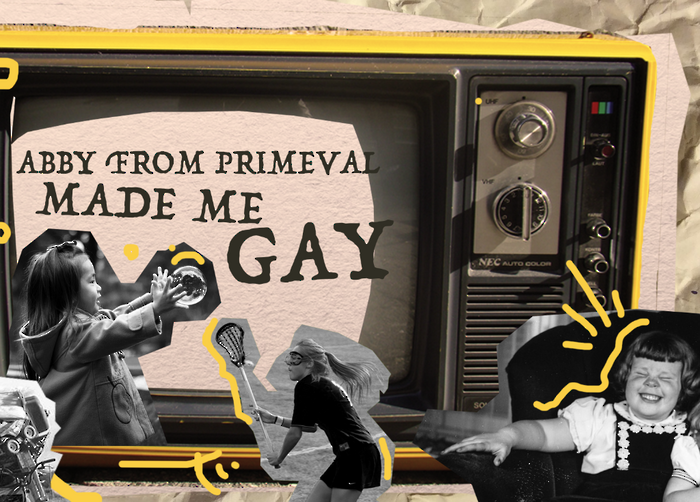Looking Glass preview: ‘raw and compelling’
Cast and choreographer work together to translate Lewis Carroll’s classic into an absorbing visual commentary on the Cambridge student experience

Looking Glass is born of choreographer Nolwenn Lecompte’s frustration with her previous forays into choreography at university. As the current president of the Cambridge University Dance Society, Lecompte has been involved in the choreography for various shows: she admits to being struck by the pressure and expectation heaped upon performers to pander to the requirements of judges and audiences. In a concerted effort to break from these restrictions, Looking Glass prioritises the abstract and communicative capacity of contemporary dance, as opposed to a rigid focus on technicality.
The performance is far from a traditional showpiece and is intended to encourage freedom of creative interpretation - Lecompte emphasises that she does not want the production to be in any way a stressful experience for those involved. It provides the performers with a form of escapism from daily drudgery, while also functioning as an effective outlet for self-expression, in which the dancers are encouraged to inform their movements with their own emotions – they employ dance as “a way to help oneself”.
The continual innovation of scenes so close to the opening of the show maintains a sense of freshness
The team work in accordance with Lecompte’s overarching vision but their development of scenes consists of collectively reading through Lewis Carroll’s Through the Looking Glass and pooling interpretive ideas. This vibrant debate and subsequent physical experiment proves transformative in its ability to bring to life even the most unorthodox of rehearsal spaces – the carpet stains, multiple pianos, and lonely flipchart of Murray Edwards’ “party house” suddenly seem only a Carroll-esque extension of the piece’s surrealism.
The performers agree that this discursive environment is extremely conducive to the shaping of artistic design, as a safe space in which all contributions are welcomed, valued, and moulded into the overall spectacle. The nature of the piece as a work of dance and physical theatre lends itself to this model of collaborative production as there are fewer conventional restraints. Performance art which focuses on conveying emotion through the language of the body appears to be greatly enhanced by this form of open communication, which is facilitated by the lack of pressure to recreate anything that has been previously devised or constructed.

The cast draw analogies between the nonsensical linguistic and physical interactions in Carroll’s work and the emotional fluctuation which characterises the Cambridge student experience. Wonderland lends itself perfectly to metaphorical extraction. In a discursive world where sheep can become supervisors, anything is possible. Tweedledum and Tweedledee, for instance, are employed as a representation of a tormented psyche: their unity is chillingly implied yet their disjunction is conveyed by their contrasting movements. The jagged and spasmodic gestures of one are offset by the fluidity of the other as they descend on Alice, throwing her into a chair and hinting at the inherited anxiety which can result from allowing the emotional turmoil of another to inhibit oneself.
While there is an overall structure, there is also a reluctance to tend towards rigidity; the general emphasis is on improvisation and flexibility. The continual innovation of scenes so close to the opening of the show maintains a sense of freshness, with the performers being actively encouraged to allow their current emotional states to bleed into the spectacle. While Carroll’s Looking Glass reflects a world of absurdity, this reinterpretation holds up a mirror to the interior landscapes of the individual actors, who each get a chance to perform as the central protagonist. The group collectively decide the music that they feel is appropriately in tune with their vision for every scene. The results are raw and compelling, with the symbolic and psychomachian nature of the spectacle effectively facilitating individual audience responses.
The overall effect is spellbinding: a piece which truly heralds emotional and artistic liberation.
Looking Glass is on at the Corpus Playroom 1-5 May
 News / Cambridge Folk Festival cancelled19 January 2025
News / Cambridge Folk Festival cancelled19 January 2025 News / News in brief: ‘SU-permarket’ and alumnus marriage21 January 2025
News / News in brief: ‘SU-permarket’ and alumnus marriage21 January 2025 News / Law student set to sue Cambridge after failing PhD15 January 2025
News / Law student set to sue Cambridge after failing PhD15 January 2025 Lifestyle / Blind Date: ‘Sparks weren’t flying’19 January 2025
Lifestyle / Blind Date: ‘Sparks weren’t flying’19 January 2025 News / Christian Horner and Palestinian Ambassador to speak at Union20 January 2025
News / Christian Horner and Palestinian Ambassador to speak at Union20 January 2025






